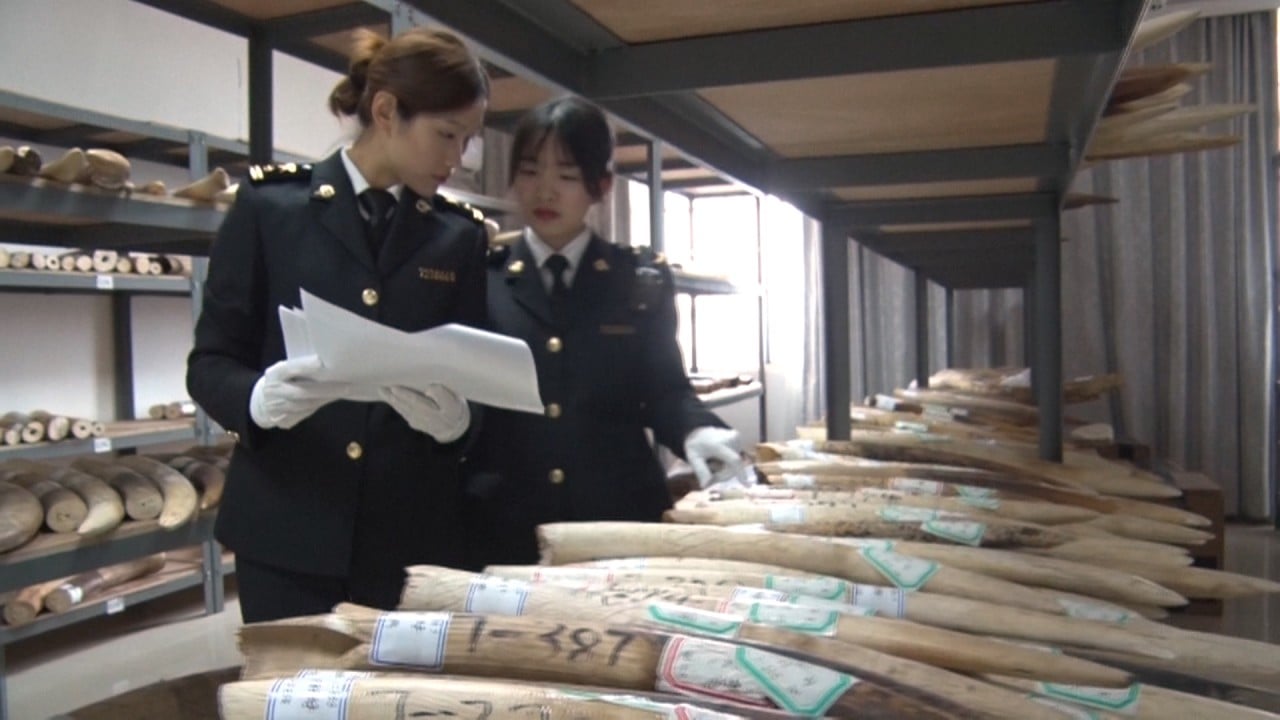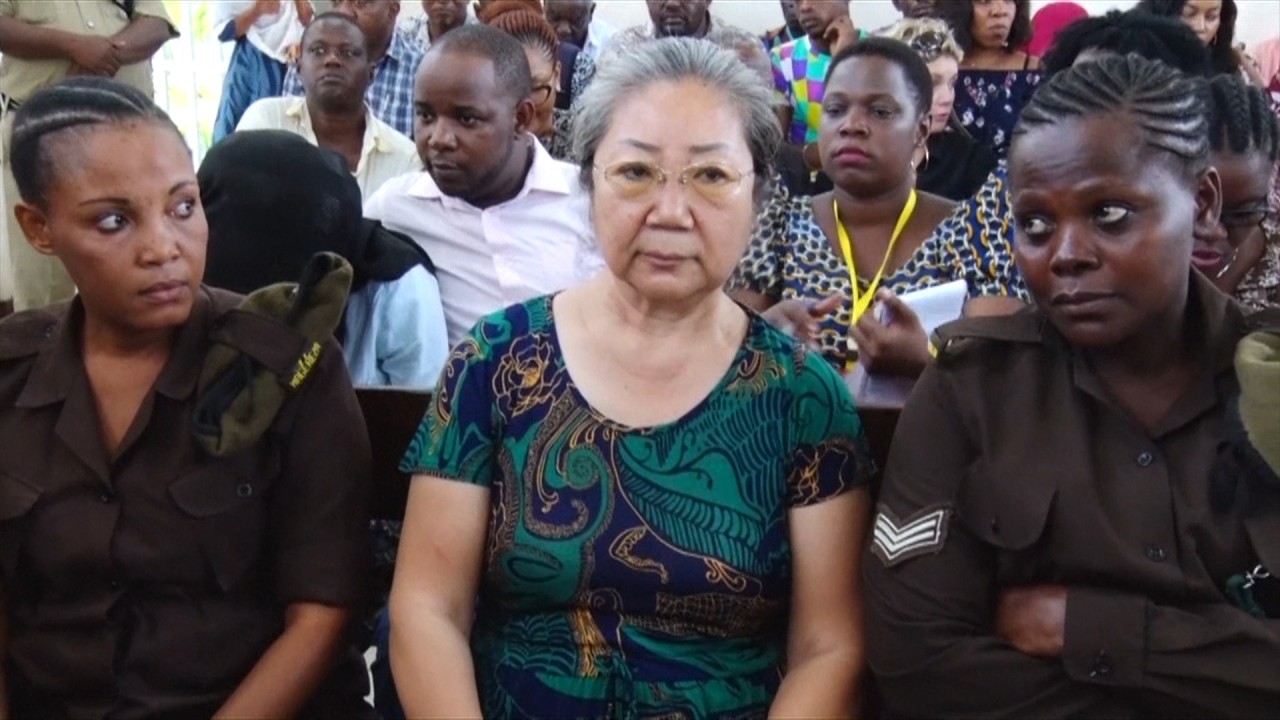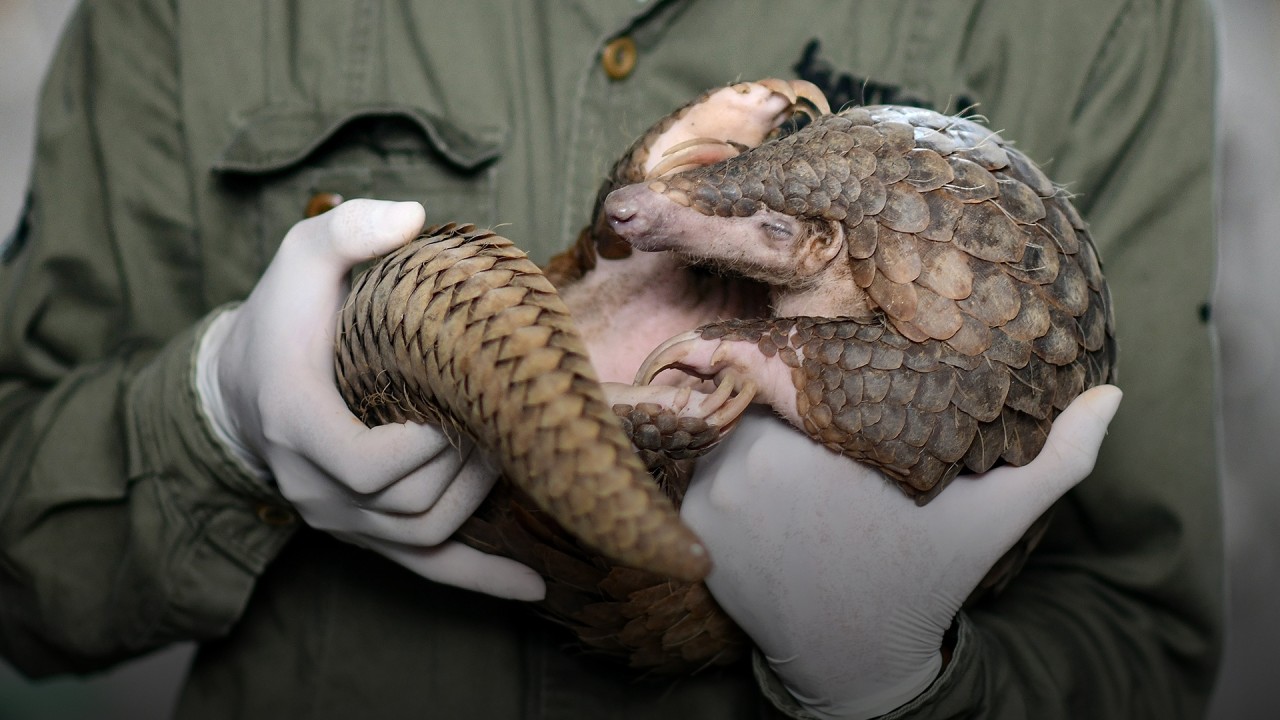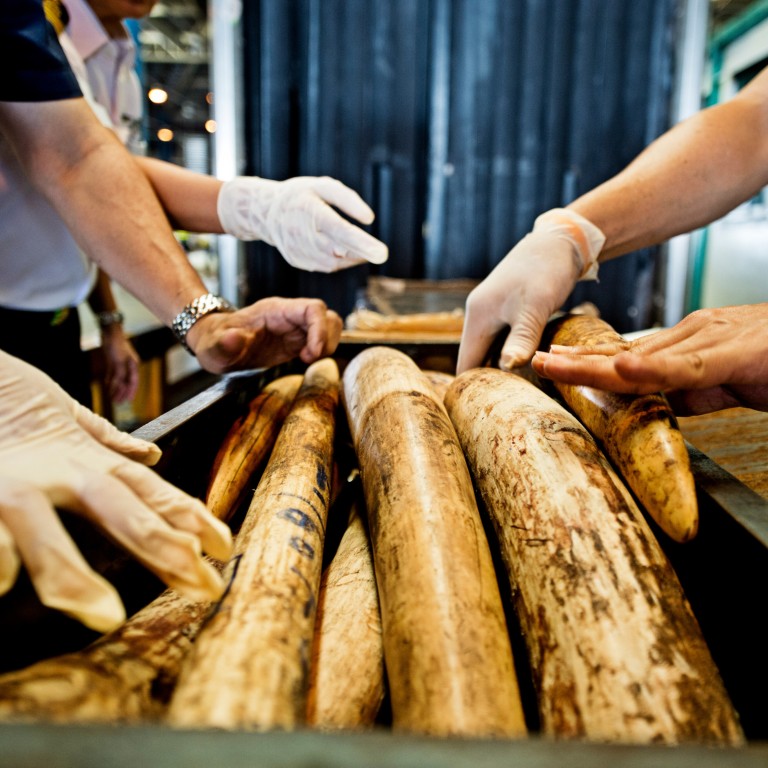
Despite crackdown, ‘demand keeps China’ on wildlife smuggling map
- Wildlife Justice Commission says South Korea-China shipping route should be flagged as ‘high risk’ for trafficking
- WJC says case involving Chinese family shows criminals are resourceful and can adapt if demand for ivory persists
“Whilst continued pressure on the trafficking networks is essential, demand reduction and education are also very important,” a spokeswoman for the non-profit foundation said.
The commission also said the South Korea-China shipping route should be flagged as “high risk” for wildlife trafficking.
China’s ivory ban at risk from legal trade in woolly mammoth tusks
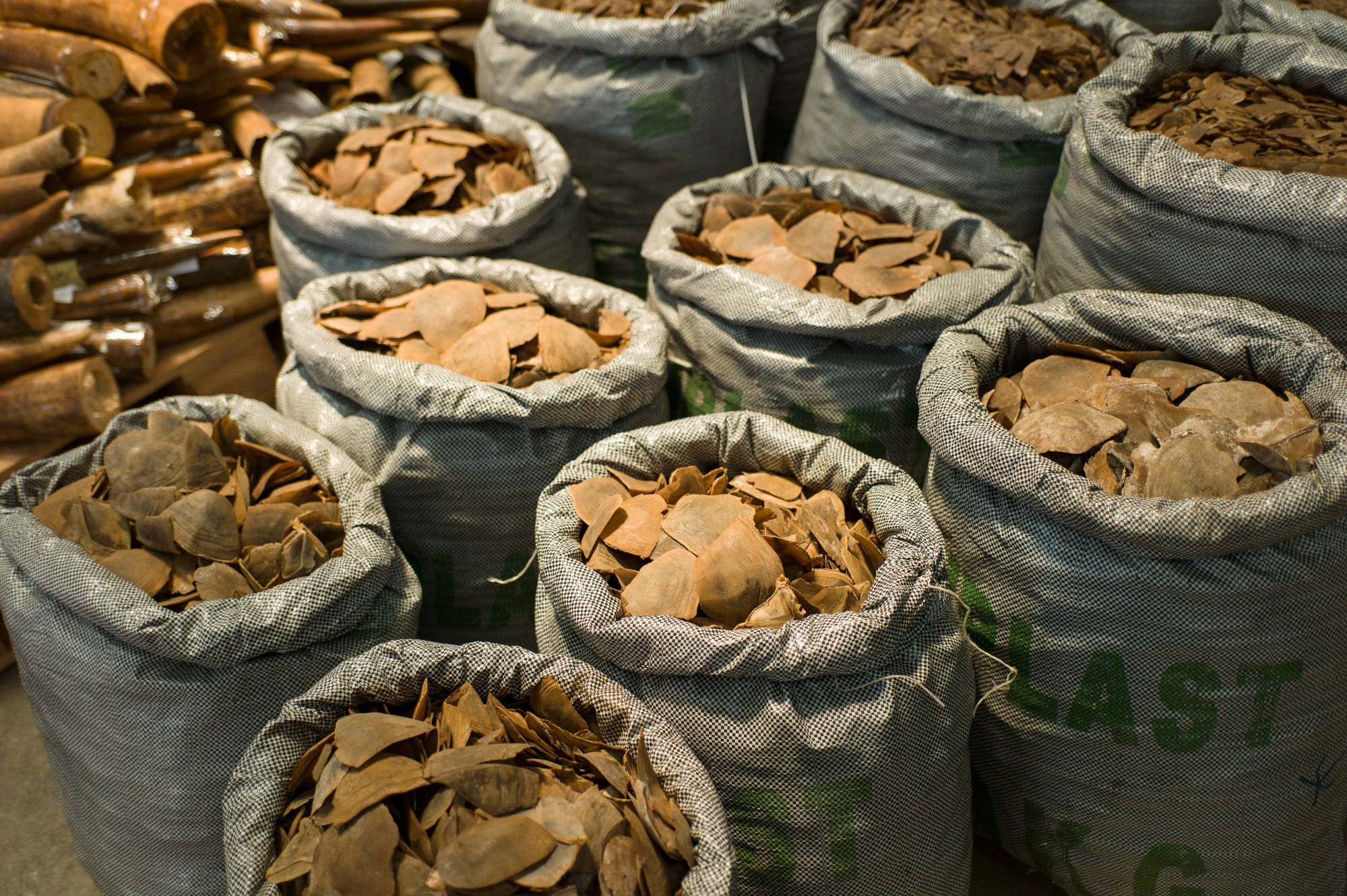
The WJC said effective and intelligence-led law enforcement efforts in China had led to changes in the global trafficking landscape, with Vietnamese criminal networks replacing or competing with Chinese traffickers in African countries.
The group smuggled at least 20 tonnes of elephant ivory from Nigeria to China under the cover of a timber business between 2013 and 2019, taking advantage of free ports in Asia and bribing a customs officer, according to a WJC report.
The report said two sons of a family from the Chinese eastern coastal province of Fujian opened a timber shop in 2011 in a market in Dongguan, the biggest timber trading centre in southern China.
The shop did very little business and the pair appeared to have little understanding of the timber trade, the report said, citing other timber traders in the market. But the younger son was soon driving a new luxury car and bought a flat near the market.
The family, identified by the surname Chen, also started building a seven-storey ancestral house in their hometown in 2012, described by the authorities as “extravagantly decorated”, according to the report.
The WJC said “the Chen [group] used their established timber business in Nigeria as a cover to smuggle ivory, and wooden crates and timber planks as the concealment method”.
The first seizure by Chinese customs took place in 2013 when officers at a Dongguan port inspected a shipment from Nigeria via Hong Kong that was declared as rosewood timber.
They uncovered almost 2,000 pieces of ivory and two rhino horns concealed inside custom-made wooden crates hidden in containers behind tight stacks of heavy timber planks.
“This was likely a favoured concealment method not only because of the Chens’ existing timber business, but also due to timber planks being heavy and cumbersome to move so they could potentially act as a deterrent to customs officers from fully unloading a container during an inspection,” the WJC said.
China bans trade, eating of wild animals in battle against coronavirus
The authorities identified the owners of the shipment as Chen and his two sons. But the trio fled to Malaysia the next day and evaded arrest.
From Malaysia, the family continued their smuggling business with new partners and fake passports with which the youngest son entered China 21 times between 2015 and 2019.
The group also shifted to “a more costly but secure route”, taking shipments via South Korea and adding stops along the way to reduce their risk of being detected, the report said.
“The Chen [group] used longer, more expensive shipping routes with multiple transit points, to re-export shipments with ‘new’ bills of lading and obscure the originating port in Africa,” the report said.
“They also took advantage of the fact that transshipment hubs do not have the capacity to inspect every container by sending shipments to Hong Kong, Singapore and South Korea.”
After investigators found that one of the sons had been using a false identity to return to the country, they also discovered that he often travelled to the eastern province of Anhui despite having no business or family ties there.
They later tracked down a cable factory there that stored two ivory shipments totalling nearly 16 tonnes that had been transported from Nigeria to China via Singapore and South Korea in 2017 and 2018.
But in 2018 the group struggled to sell their ivory after the trade ban in China came into effect.
“The ivory shipment of February 2018 was stranded for more than a year in storage as it had become too difficult to sell due to the government’s strict ivory crackdown,” the report said.
One of the biggest problems in the fight against illegal wildlife trade
The WJC said their analysis of Chinese court documents showed more criminals being convicted because of investigations conducted on or through the Chinese chat app WeChat. Some traffickers have turned to other apps to avoid detection.
Authorities found that the son often drove to the airport and stayed for a few hours but there were no records of him flying. Big data analysis of the flight and passenger records showed the times he stayed at the airport matched the arrival and departure time of a Malaysian businessman, revealing their illegal partnership.
A Chinese customs officer who aided clearance of the illegal cargo was among those convicted of colluding to import 25 batches of products for the businessman.
The officer confessed to initially charging 200,000 yuan (US$31,400) per container but gradually doubled the bribes.
Four months after the son was arrested while dining at a restaurant in China in November 2018, police arrested 20 members along the supply chain and seized about 2,750 pieces of ivory weighing 7.5 tonnes at the cable factory in Anhui.
“The case certainly identifies the resilience of organised crime groups to absorb losses and prosper even after law enforcement interventions. Criminal networks are often resourceful and where demand exists, a supply chain is often formed or adapted to feed it,” a WJC spokeswoman said.


